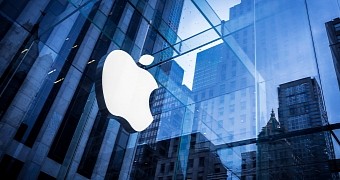Apple is getting more and more security requests, reveals its Transparency Report. In fact, the number has doubled in last year's second half.
According to Apple's latest Transparency Report, between January and June 2016, the company received around 3,000 requests from the US authorities. Between July and December, the number reached closer to 6,000. More exactly, the company received between 5,750 and 5,999 National Security Requests under FISA and National Security Letters. These affected between 4,750 to 4,999 accounts. The numbers, according to the law, can only be provided by using intervals.
As Apple explains it, government request circumstances can vary from instances where law enforcement agencies request assistance locating lost or stolen devices to helping out customers who suspect their credit card has been used to fraudulently purchase Apple products or services.
Furthermore, worldwide, Apple received over 30,000 device requests, covering over 151,000 devices. Apple complied with over 21,700 device requests or 72% of the total.
Lots of data requests from all over the world
Additionally, Apple received close to 2,400 financial identifier requests at a global level, covering 21,249 devices. The company complied with 1,821 of those requests, which are related to cases where law enforcement officials are trying to help customers who have discovered fraudulent credit card activity.
Government account requests amounted to 2,231, out of which 175 were rejected. Additionally, 471 of those requests resulted in the company providing no data.
What's more, the company disclosed that it was sent a national security letter, which was declassified. This type of letters are considered one of the most severe kind of subpoenas law enforcement agencies can send companies. It is obvious that Apple is fighting back overly broad requests for data, which have become the norm for law enforcement agencies.
By pushing for the letter to be declassified, they are taking a stand against actions they do not agree with. Previously, Apple has fought against the FBI after it was asked to decrypt the iPhone of the San Bernardino shooter, even though it does not possess the capability to do so.

 14 DAY TRIAL //
14 DAY TRIAL //